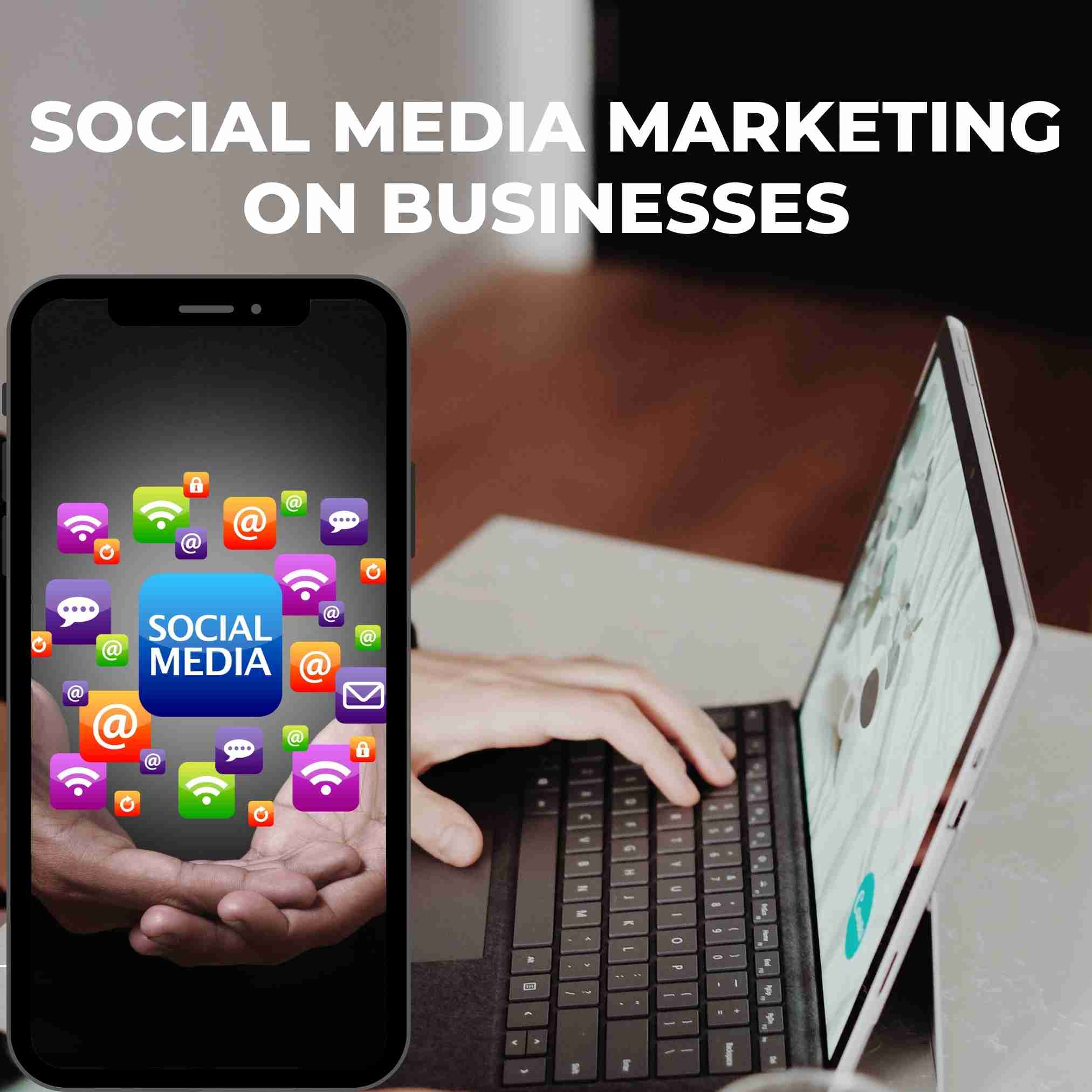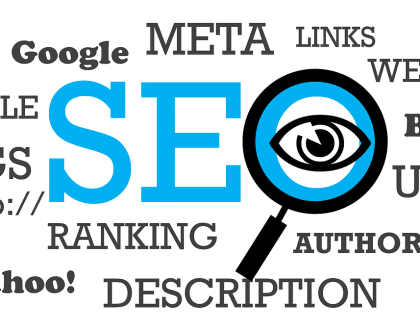Social Media Marketing on Businesses: A Comprehensive Analysis

Social Media Marketing on Businesses – In the digital age, social media has emerged as a powerful tool for businesses to connect with their target audience, build brand awareness, and drive sales. Social media marketing (SMM) has become an integral part of the marketing strategies of businesses across industries, revolutionizing the way they engage with customers and promote their products or services. In this comprehensive guide, we will delve deep into the effects of social media marketing on businesses, exploring its benefits, challenges, and best practices.
The Impact of Social Media Marketing on Businesses: A Comprehensive Analysis
A. Understanding Social Media Marketing
Social media marketing refers to the use of social media platforms to promote products or services, engage with audiences, and build brand awareness. It encompasses various activities such as creating and sharing content, interacting with followers, running ads, and analyzing performance metrics. The primary goal of social media marketing is to drive traffic, generate leads, and ultimately, increase sales and revenue for businesses.
The Rise of Social Media Platforms:
Over the past decade, social media platforms such as Facebook, Instagram, Twitter, LinkedIn, and TikTok have experienced exponential growth in user numbers and engagement. These platforms have evolved from mere communication tools to powerful marketing platforms, offering businesses unprecedented access to their target demographics. With billions of active users worldwide, social media has become an indispensable channel for businesses to reach and engage with potential customers.
B. Importance of Social Media Marketing for Businesses
The proliferation of social media has transformed the way businesses interact with their customers and market their products or services. Here are some key reasons why social media marketing is essential for businesses:
Increased Brand Visibility:
- Social media allows businesses to reach a larger audience and increase brand visibility. By regularly posting engaging content and interacting with followers, businesses can enhance brand awareness and establish a strong online presence.
Audience Engagement:
- Social media provides a platform for businesses to engage directly with their target audience. Through likes, comments, shares, and direct messages, businesses can foster meaningful interactions with customers, build relationships, and gain valuable feedback.
Targeted Advertising:
- Social media platforms offer advanced targeting options that allow businesses to reach specific demographics based on factors such as age, gender, location, interests, and behavior. This enables businesses to deliver personalized content to relevant audiences, resulting in higher engagement and conversion rates.
Cost-Effective Marketing:
- Compared to traditional advertising channels such as television, radio, and print media, social media marketing is often more cost-effective. Many social media platforms offer advertising options with flexible budgets, allowing businesses of all sizes to run targeted campaigns without breaking the bank.
Data Analytics:
- Social media platforms provide powerful analytics tools that allow businesses to track the performance of their marketing campaigns in real-time. From the number of impressions and clicks to audience demographics and engagement metrics, businesses can gain valuable insights into the effectiveness of their social media efforts and make data-driven decisions to optimize their strategies.
C. Types of Social Media Marketing
Social media marketing encompasses various strategies and tactics aimed at achieving specific business objectives. Some common types of social media marketing include:
Content Marketing:
- This involves creating and sharing valuable, relevant content to attract and engage audiences. Content marketing on social media can take various forms, including blog posts, articles, videos, infographics, and podcasts.
Influencer Marketing:
- Influencer marketing involves partnering with social media influencers who have a large following and influence within a particular niche or industry. By collaborating with influencers, businesses can reach their target audience more effectively and leverage the trust and credibility of the influencer to promote their products or services.
Paid Advertising:
- Many social media platforms offer paid advertising options that allow businesses to promote their content to a targeted audience. These ads can take the form of sponsored posts, display ads, video ads, or carousel ads, depending on the platform and campaign objectives.
Social Media Management:
- Social media management involves the strategic planning, scheduling, and monitoring of social media content and interactions. It includes tasks such as content creation, community management, social listening, and performance analysis.
D. The Impact of Social Media Marketing on Businesses
Now that we’ve explored the basics of social media marketing, let’s delve into its impact on businesses in more detail:
1. Increased Brand Awareness and Exposure:
- One of the primary benefits of social media marketing for businesses is increased brand awareness and exposure. By regularly sharing engaging content and interacting with followers, businesses can expand their reach and attract new audiences who may not have been aware of their brand otherwise. Social media allows businesses to showcase their products or services, share their brand story, and differentiate themselves from competitors, ultimately leading to greater brand visibility and recognition.
2. Improved Customer Engagement and Loyalty:
- Social media provides businesses with a direct line of communication to their customers, enabling them to engage in real-time conversations, address customer inquiries and concerns, and provide timely support. By actively engaging with their audience and delivering valuable content, businesses can build trust, loyalty, and long-term relationships with customers. Studies have shown that customers who engage with brands on social media are more likely to become loyal advocates and repeat buyers.
3. Enhanced Targeting and Personalization:
- Social media platforms offer sophisticated targeting options that allow businesses to reach highly specific demographics based on factors such as age, gender, location, interests, and behavior. This enables businesses to deliver personalized content and offers to the right audience at the right time, increasing the likelihood of engagement and conversion. By leveraging data analytics and insights, businesses can refine their targeting strategies and tailor their messaging to resonate with different segments of their audience.
4. Increased Website Traffic and Conversions:
- Social media marketing can drive significant traffic to a business’s website or online store, leading to increased visibility, engagement, and conversions. By strategically sharing links to blog posts, product pages, or promotional offers, businesses can direct users to their website where they can learn more about the brand and make a purchase. Additionally, social media advertising campaigns can be optimized to drive specific actions such as website visits, sign-ups, or purchases, resulting in higher conversion rates and return on investment (ROI).
5. Valuable Insights and Analytics:
- Social media platforms provide businesses with a wealth of data and analytics that can be used to measure the performance of their marketing efforts and gain valuable insights into their audience’s behavior and preferences. From engagement metrics such as likes, comments, and shares to demographic data and conversion tracking, businesses can track the effectiveness of their campaigns in real-time and make data-driven decisions to optimize their strategies. By analyzing key performance indicators (KPIs) and trends, businesses can identify areas for improvement and refine their social media marketing tactics for better results.
E. Challenges and Limitations of Social Media Marketing
While social media marketing offers numerous benefits for businesses, it also presents certain challenges and limitations that must be considered:
1. Algorithm Changes and Organic Reach:
- Social media algorithms are constantly evolving, which can impact the organic reach and visibility of business content. Changes to algorithms may prioritize certain types of content or interactions, making it more difficult for businesses to reach their target audience organically. As a result, businesses may need to invest in paid advertising or alternative strategies to maintain visibility and engagement on social media platforms.
2. Competition and Saturation:
- The increasing popularity of social media marketing has led to heightened competition and saturation in many industries. With countless businesses vying for the attention of users on social media, standing out from the crowd can be challenging. Businesses may need to invest in creative content, strategic targeting, and innovative tactics to cut through the noise and capture the interest of their target audience.
3. Negative Feedback and Reputation Management:
- Social media provides a public forum for customers to voice their opinions, both positive and negative, about a business or its products. Negative feedback or criticism on social media can quickly escalate and damage a business’s reputation if not addressed promptly and effectively. Businesses must actively monitor their social media channels, respond to customer feedback in a timely and professional manner, and take proactive steps to manage their online reputation.
4. Measurement and ROI:
- Measuring the ROI of social media marketing efforts can be challenging due to the complex nature of the digital landscape and the multitude of factors that contribute to success. While social media platforms offer robust analytics tools, attributing conversions and sales directly to social media interactions can be difficult. Businesses may need to implement advanced tracking mechanisms, conduct A/B testing, and analyze multi-touch attribution models to accurately measure the impact of their social media marketing efforts on business outcomes.
5. Adapting to Platform Changes and Trends:
- Social media platforms are constantly evolving, introducing new features, algorithms, and trends that businesses must adapt to stay relevant. Keeping up with these changes and trends requires ongoing education, experimentation, and flexibility. Businesses must stay informed about the latest developments in social media marketing, experiment with new strategies and tactics, and continuously iterate and optimize their approach to remain competitive in the ever-changing landscape.
F. Best Practices for Social Media Marketing Success
To maximize the impact of social media marketing on their businesses, organizations can follow these best practices:
1. Define Clear Objectives and Goals:
- Before embarking on a social media marketing campaign, businesses should clearly define their objectives and goals. Whether it’s increasing brand awareness, driving website traffic, generating leads, or boosting sales, having specific, measurable goals will guide strategy development and performance evaluation.
2. Know Your Audience:
- Understanding your target audience is essential for effective social media marketing. Conduct market research, analyze customer demographics and preferences, and create detailed buyer personas to tailor your messaging and content to resonate with your audience.
3. Create Compelling Content:
- Content is king in social media marketing. Create high-quality, engaging content that provides value to your audience and encourages interaction and sharing. Experiment with different formats such as videos, images, infographics, and polls to keep your content fresh and engaging.
4. Engage Authentically:
- Authenticity is key to building trust and credibility on social media. Be genuine, transparent, and responsive in your interactions with your audience. Encourage two-way communication, listen to feedback, and address customer inquiries and concerns promptly and professionally.
5. Leverage Data and Analytics:
- Utilize social media analytics tools to track the performance of your marketing efforts and gain insights into your audience’s behavior and preferences. Monitor key metrics such as engagement rates, reach, impressions, and conversion rates, and use this data to refine your strategies and optimize your campaigns for better results.
6. Stay Consistent and Persistent:
- Consistency is crucial for success in social media marketing. Develop a consistent posting schedule and brand voice, and stick to it to maintain visibility and engagement with your audience. Be persistent and patient, as building a strong presence on social media takes time and effort.
7. Monitor and Adapt:
- Monitor your social media channels regularly to track performance, monitor trends, and identify opportunities for improvement. Stay informed about changes and updates to social media platforms and adjust your strategies accordingly to stay ahead of the curve.
Conclusion: Social Media Marketing on Businesses
Social media marketing has emerged as a powerful tool for businesses to connect with their target audience, build brand awareness, and drive sales. By leveraging the reach and engagement of social media platforms, businesses can reach new audiences, engage with customers, and achieve their marketing objectives more effectively. However, social media marketing also presents challenges and limitations that businesses must navigate to succeed in the competitive digital landscape. By following best practices, staying informed about industry trends, and adapting to changes, businesses can harness the power of social media marketing to grow their brand and achieve long-term success.
Recommended Posts

Local SEO vs. Global SEO: A Comprehensive Guide
May 14, 2025



